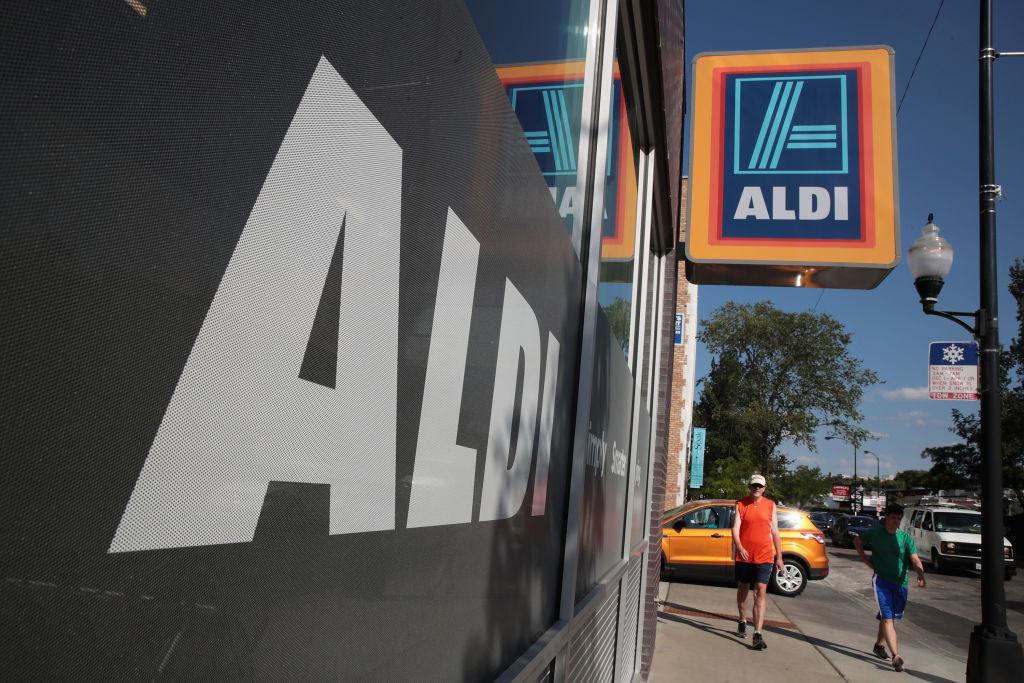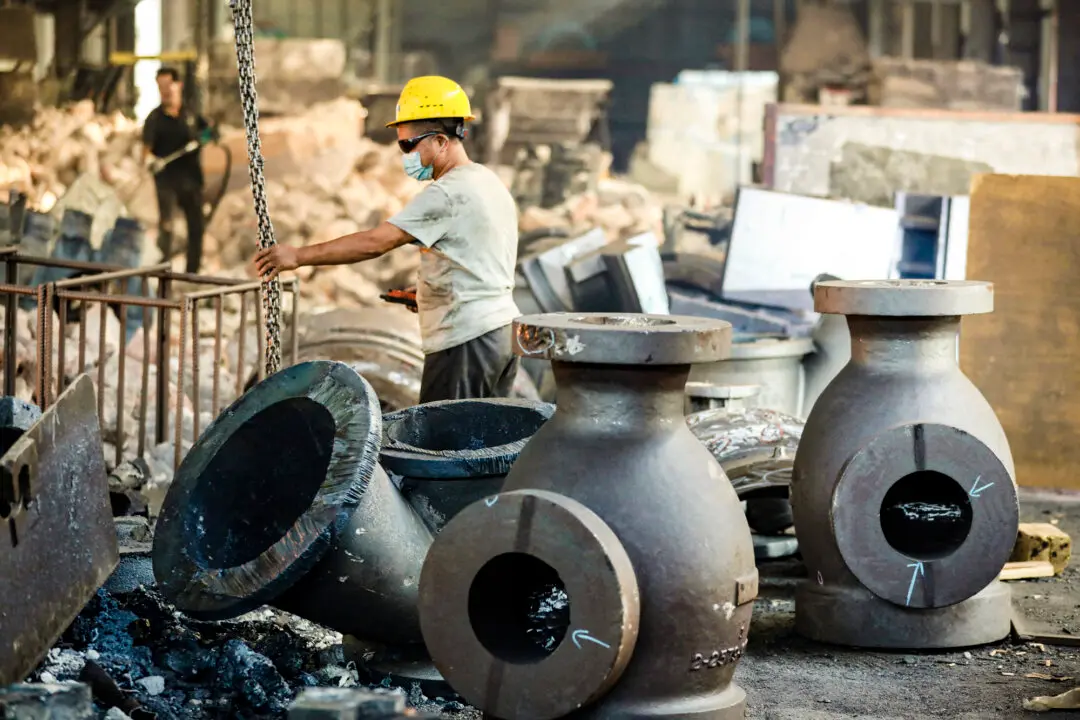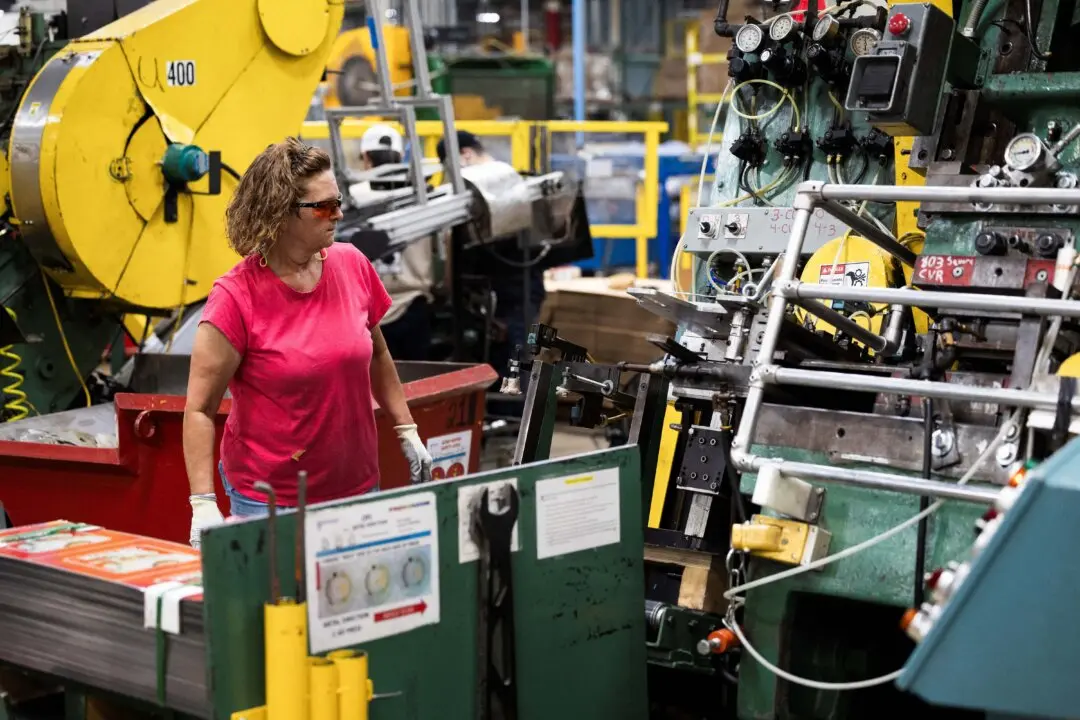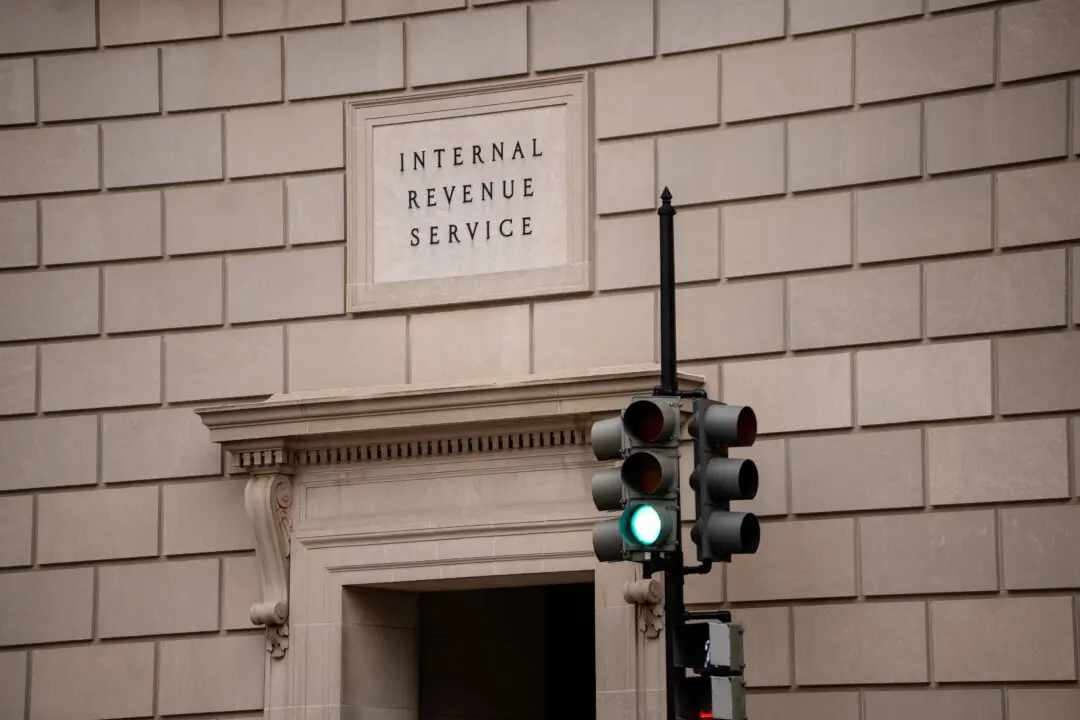German supermarket chain Aldi on Tuesday became the latest company in the grocery sector to offer incentives to U.S. employees to get a COVID-19 vaccine, in a bid to remove obstacles for workers who may be reluctant to get the jab for fear of losing wages or other concerns.
The retailer, which has more than 2,000 stores in 37 states, will give up to four hours of pay to those hourly workers who choose to get inoculated against COVID-19, the company said in a statement (pdf). Salaried workers, meanwhile, will be offered flexible scheduling arrangements to make it less burdensome for them to get a shot.





